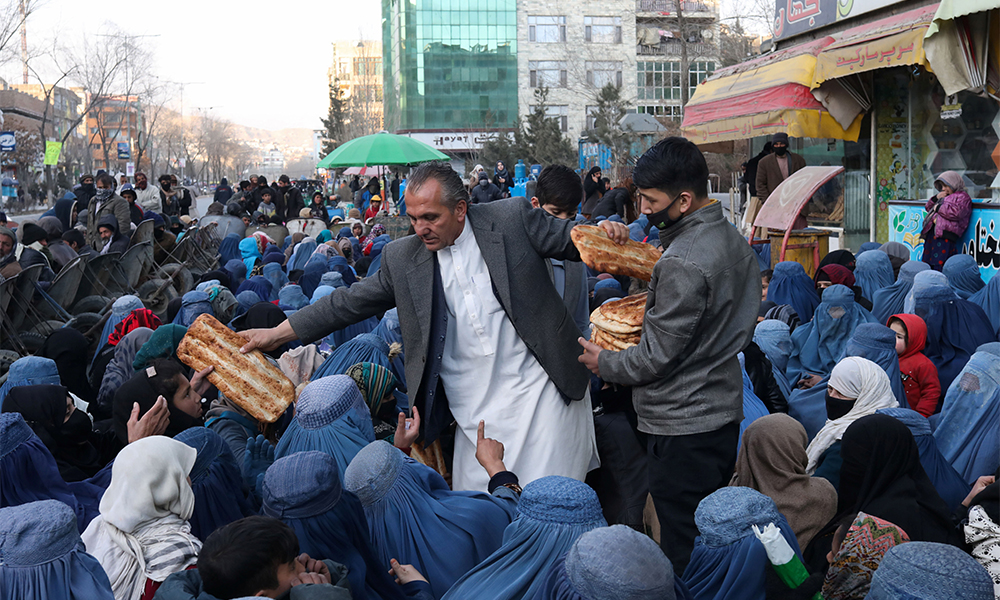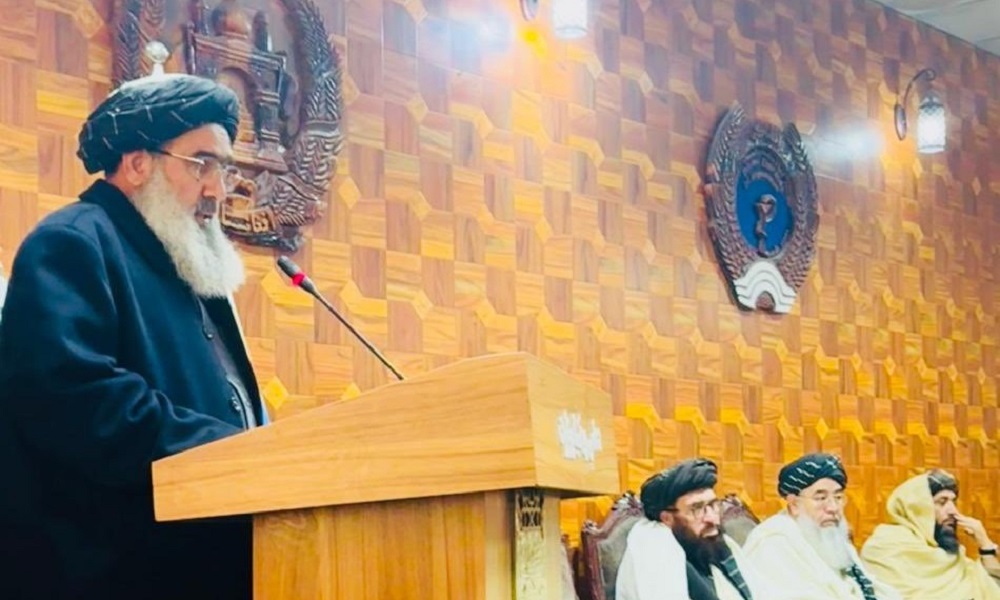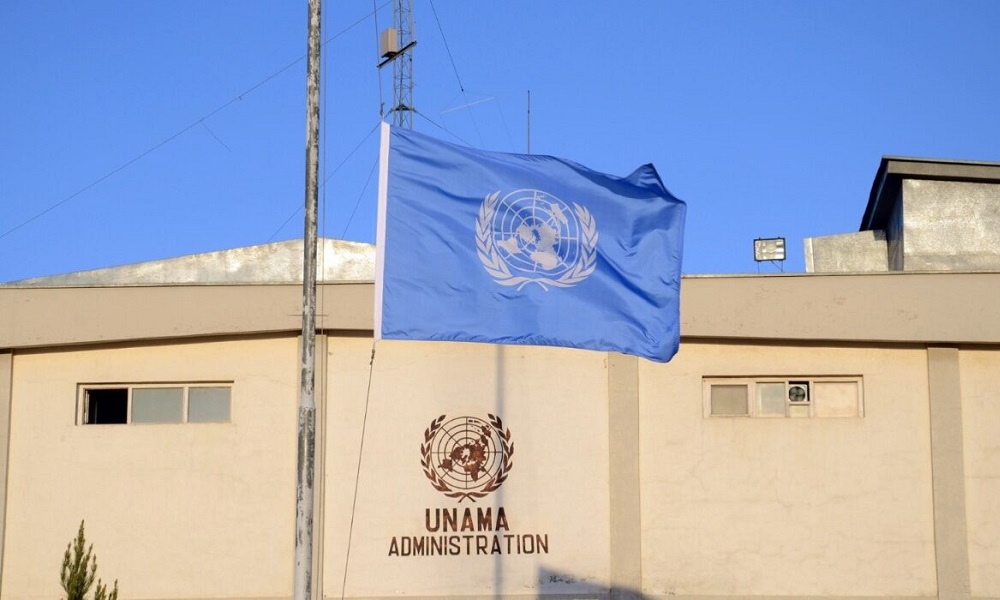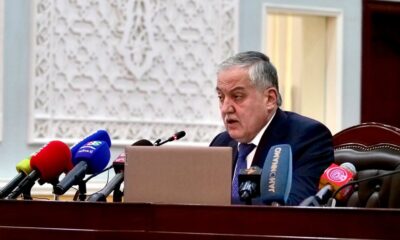Latest News
More Afghans going hungry, fewer jobs available – World Bank

The number of people in Afghanistan who cannot afford food and other essentials has doubled since the Islamic Emirate of Afghanistan (IEA) takeover of the country in August 2021 as unemployment rises and wages fall, a World Bank survey showed on Tuesday.
The Afghanistan Welfare Survey, conducted by phone and covering the October-December 2021 period, found that 70% of respondents said their households were unable to cover basic food and non-food needs, up from 35% in May 2021.
The share of Afghan households switching to lower-quality or less expensive food rose to 85% from 56% in the July-August 2021 period, it found.
Nearly half of households also reported a decline in the number of meals consumed each day, up from around a quarter in July-August 2021.
The World Bank attributed the sharp increase in poverty to overall economic conditions rather than to “specific actions introduced by the interim administration”, citing in particular a decline in public sector jobs.
The IEA authorities still lack international recognition seven months after overrunning Kabul as the last U.S.-led international troops departed, ending 20 years of war.
Donors cut financial aid constituting more than 70% of government expenditures and about $9 billion in Afghan central bank assets were frozen. Many IEA leaders remain under US and UN sanctions.
The United Nations has previously warned that more than half of Afghanistan’s 39 million people face starvation.
The World Bank study found about a fifth of household heads were looking for work in the October-December 2021 period, up from 8% during the same period of 2019, largely due to a decline in jobs in the army, police and other security services.
Despite Western concerns that the IEA would roll back women’s rights, the survey said that nationwide, school attendance among both boys and girls aged 6-18 had risen in October-December 2021 compared to the same period of 2019.
The share of households sending boys to school increased to 73% from 63%, while those sending girls rose to 54% from 44%.
The share of urban households sending girls to school stayed flat at 53%, but households sending girls only to primary school rose to 19% from 5%.
Under their previous rule from 1996 to 2001, the IEA barred women and girls from education. They say they have since changed.
Latest News
Ministries of Public Health and Higher Education sign cooperation agreement

The Ministry of Public Health announced on Tuesday it has signed a cooperation agreement with the Ministry of Higher Education aimed at expanding scientific, research, educational, and technical cooperation.
At the signing ceremony held in Kabul, Noor Jalal Jalali, Minister of Public Health, said that the agreement would lead to significant improvements in the capacity-building of students and doctors, ensure that research is conducted based on evidence, and enable the collection of accurate data.
Meanwhile, Neda Mohammad Nadeem, Minister of Higher Education, described the agreement as beneficial to the public and to both institutions, stressing the need to train individuals at universities who can contribute to social development and make the country self-sufficient in the public health sector.
Latest News
UNAMA holds new round of Working Group meetings on counter-narcotics and private sector

The United Nations Assistance Mission in Afghanistan (UNAMA) has convened a new round of Doha Process Working Group meetings focusing on counter-narcotics and private sector development.
The meetings, held in Kabul on February 3 and 9, brought together representatives of UN member states and international organizations, officials of the Islamic Emirate, and subject-matter experts.
According to UNAMA, discussions in the counter-narcotics working group centered on efforts by Islamic Emirate authorities and the international community to support alternative livelihoods for Afghans previously dependent on poppy cultivation and the illicit opium trade. Participants also reviewed drug-use prevention and treatment initiatives, as well as law-enforcement measures to curb narcotics production and trafficking.
The private sector working group focused on job creation and entrepreneurship, with particular attention to women’s participation in the private sector, market integration, access to finance, and the development of private banking and financial infrastructure.
UNAMA said both working groups identified priority areas for enhanced engagement and explored more effective and sustainable approaches to supporting Afghan men and women. Participants also examined the linkages between the two areas, noting that private sector development is a key source of livelihoods, while counter-narcotics efforts contribute to Afghanistan’s economic and social stability.
The working groups were established following the third Meeting of Special Envoys held in Doha, Qatar, in June and July 2024, in line with recommendations of the Independent Assessment endorsed by the UN Security Council. The process aims to promote more coherent, coordinated, and structured engagement with Afghanistan’s de facto authorities for the benefit of the Afghan people.
UNAMA added that stakeholders engage in the working groups on an ongoing basis, with full-format meetings convened periodically. Since their establishment, the groups have improved information-sharing, helped mobilize additional resources, and facilitated expert exchanges to strengthen support for the Afghan people.
Latest News
Economic Commission approves national policy for development of agriculture

At a regular meeting of the Economic Commission chaired by Mullah Abdul Ghani Baradar, Deputy Prime Minister for Economic Affairs, the National Policy for the Development of the Agriculture and Livestock Sector was approved.
According to a statement from the deputy PM’s office, the key objectives of the policy include the mechanization of the agriculture and livestock sector; development of agricultural, irrigation, and livestock research and extension systems; management of irrigation systems; support for investment in these sectors; and ensuring public access to high-quality agricultural and animal products.
During the same meeting, the development plan for the fish farming sector was also approved.
Under this plan, through private sector investment, 7,700 small, medium, and large fish production and farming facilities will be established on 6,500 hectares of land in various parts of the country.
The statement added that the implementation of this plan will create direct employment opportunities for 50,000 people and indirect employment for 250,000 others.
-

 Latest News3 days ago
Latest News3 days agoAfghanistan to grant one- to ten-year residency to foreign investors
-

 Sport5 days ago
Sport5 days agoIndonesia shock Japan to reach historic AFC Futsal Asian Cup final
-

 Sport3 days ago
Sport3 days agoIran clinch AFC Futsal Asian Cup 2026 in penalty shootout thriller
-

 Latest News4 days ago
Latest News4 days agoAfghanistan says Pakistan is shifting blame for its own security failures
-

 International Sports2 days ago
International Sports2 days agoWinter Olympics gain momentum as medal table takes shape
-

 Latest News3 days ago
Latest News3 days agoTraffic police receive new cars
-

 Regional4 days ago
Regional4 days agoIran’s FM calls Oman-mediated talks with US ‘good start’
-

 Latest News2 days ago
Latest News2 days agoTajik foreign minister urges international community to help Afghanistan address its challenges
























